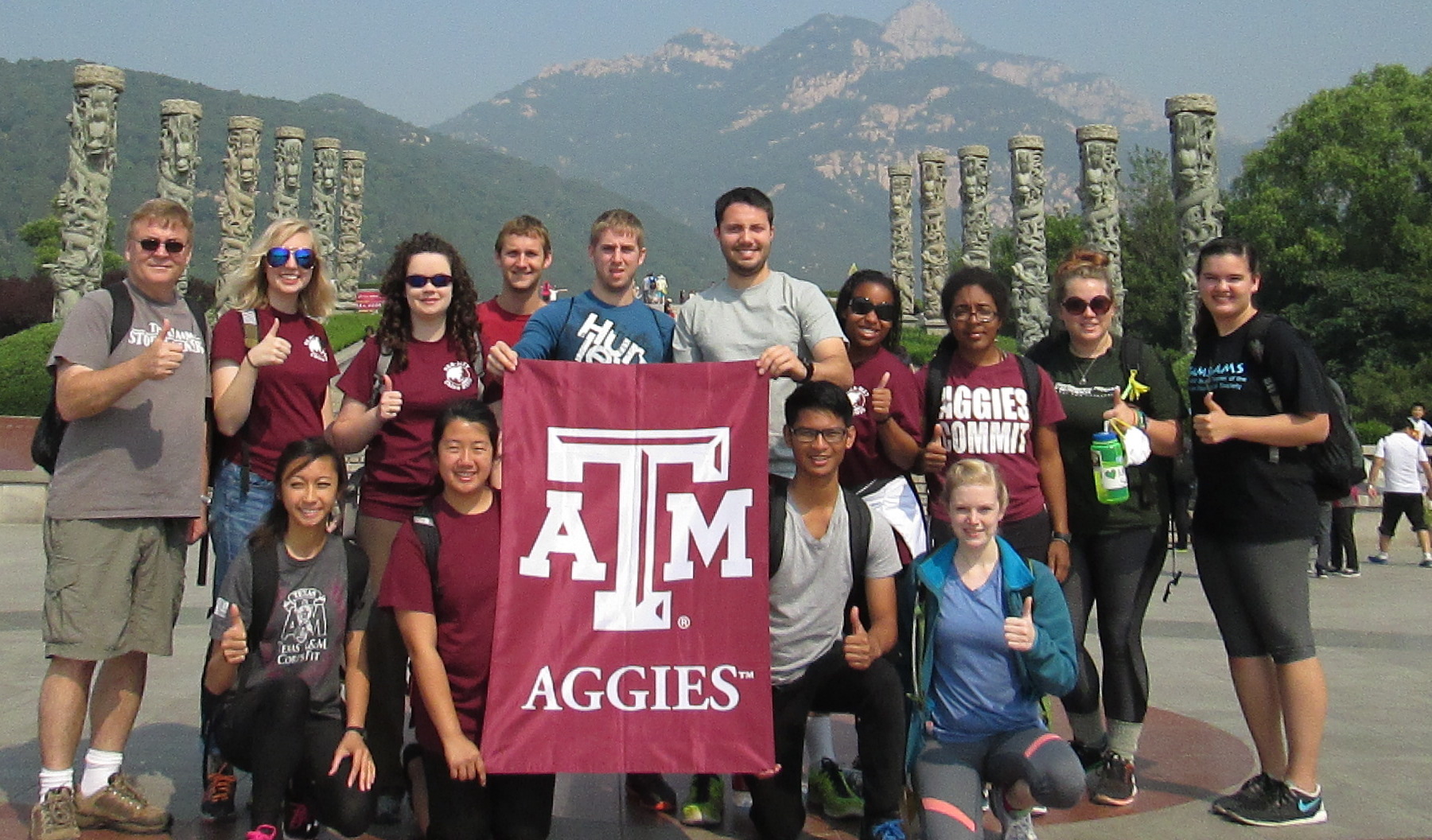Geosciences Students Explore the World
Jun 24, 2015
High-impact learning opportunities this spring and summer have taken students from the Great Wall in China to the grand mountain ranges of the American West and a Costa Rican cloud forest.
A trip to Montana, Costa Rica or even China during the summer implies vacation. But for many College of Geosciences professors and their students, these journeys are an opportunity for students to discover more about planet Earth. The spring and summer students are learning how to assess the air quality in China, map mountain morphology in Montana and operate an underwater vehicle gliding beneath the sea surface on its perpetual quest for information.
Don Conlee, instructional professor in atmospheric sciences, took 13 geosciences students on a study trip to China this May. Called SEA-Met China, participants experienced a packed 16 days of study, travel and cultural exchange. Conlee and his students, with help from Renyi Zhang and the College of Geoscience’s connections with universities in China visited Ocean University in Qingdao, and Peking and Tsinghua universities and the China Meteorological Office in Beijing.
Highlights, Conlee said, included an impromptu invitation from a family in a Chinese village to have tea and conversation and a climb up Mount Tai, a steep formation in Shandong Province.
“At more than 1500 meters,” Conlee said, “the experience was like climbing O&M more than 20 times in succession.”
A portion of the students’ expenses was funded through Association of Former Student Scholarships and contributions from the Department of Atmospheric Sciences.
 Back: Don Conlee, Blythe Sullivan, Emily Lewis, Mark Benoit, Casey Rindfus, Daniel Bosworth, Akira Giddings, Madison Toles, Shelby Orme, Meredith Seaver
Back: Don Conlee, Blythe Sullivan, Emily Lewis, Mark Benoit, Casey Rindfus, Daniel Bosworth, Akira Giddings, Madison Toles, Shelby Orme, Meredith SeaverFront: Cecille Sorio, Brittany Toy, Edmar Ruano, Megan McKeown
SOAP, REU and YAP
Professors Chris Nowotarski, Anita Rapp and Conlee are currently conducting the department’s annual SOAP program (Student Operational ADRAD Project), which teaches students how to collect meteorological data using the Aggie Doppler Radar, weather balloons and other high-tech instrumentation. This year the students are also designing products for a new regional high-resolution assessment planned by the department.
Ken Bowman and Conlee are also leading the NSF-funded REU (Research Experience), a program in which students from around the United States participate in undergraduate research projects in the lab and the field with eight other Atmospheric Sciences faculty mentors. Topics include weather and forecasting, atmospheric chemistry and aerosols, and radiative transfer and remote sensing. Further afield, the students will travel to Galveston for a sea-breeze study.
In late July, Conlee and Courtney Schumacher will host a Youth Adventure Program (YAP), conducted by the College of Education and Human Development. The weeklong summer camp introduces high school students to the field of meteorology.
NXSW
Heading north and Southwest, the Department of Geology and Geophysics had a record 72 students participating in its traditional field course. Professors Mike Pope, Brent Miller, Mike Heaney, Tom Olszewski, David Sparks, Andreas Kronenberg and Ryan Ewing led four sections of the course, where students mapped and studied spectacular outcrops up and down the Rockies from Montana to New Mexico, as well as other geological sites in Texas, Utah and Colorado. In addition, eight graduate assistants helped teach the class and cemented their own field skills in the process.
From ocean to sea
Christian Brannstrom and Steven Quiring are leading groups from Geography and Environmental Programs in Geosciences in Costa Rica, June 6–July 3. Brannstrom is teaching GEOG 450 (Field Geography), which includes survey of beach-user perceptions of rip currents and processes creating cultural landscapes in Pacific and Caribbean coasts. The program ends in the Soltis Center for Research and Education with student presentations. Quiring is teaching GEOG 380, which focuses on climate and hydrological processes around the Soltis Center, with students developing their own research projects.
The 14 students enrolled are majoring in Geography, Environmental Studies and Environmental Geosciences. All students received a $1000 scholarship from the Association of Former Students. This is the fourth summer a version of this program has been offered since 2011.
Ocean observations
Lisa Campbell, professor of oceanography and biology, is leading a pilot program in anticipation of her REU project that formally begins next summer. The SEAWATER undergraduate research program focuses on “Observing the Ocean: hypoxia, harmful algae, oil spills and ocean acidification.” Students will work in the labs and on seagoing projects with faculty and staff from Oceanography and the Geochemical and Environmental Research Group.
By Karen Riedel
Communications Manager
979-845-0910

